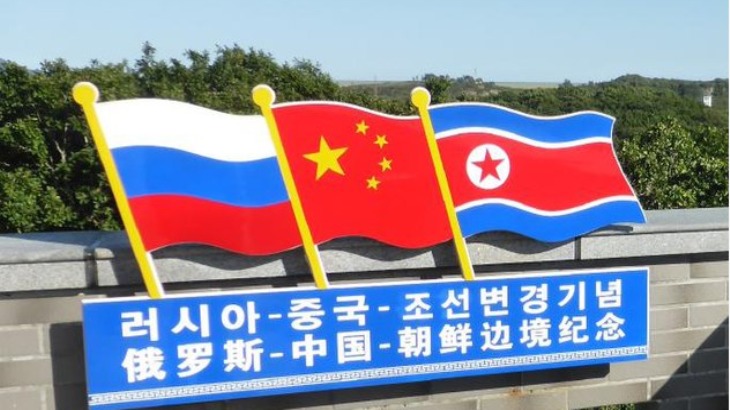India acknowledged Argentina’s interest in the Light Combat Aircraft (LCA) Tejas for the Argentine Air Force in a joint press statement issued on August 26, following the meeting between the foreign ministers.
Nuclear Fencers? Swing-Wing Su-24 Attack Jets To Be Upgraded For Firing Nuke Weapons – Belarusian President
China’s J-20 ‘Flabbergasts’ Onlookers With Deadly Maneuvers; Yu-20 Aircraft Breaks Cover At Changchun Air Show
India’s External Affairs Minister, S. Jaishankar, was on a two-day official visit to Argentina from August 25 to August 26 at the invitation of Argentine Foreign Minister Santiago Cafiero.
During the visit, the two ministers presided over a Joint Commission Meeting (JCM) to review the ongoing cooperation between India and Argentina in various sectors, including Defence, Nuclear Energy, and Space.
“India and Argentina reviewed their ongoing cooperation in the strategic sectors of Defence, Nuclear Energy, and Space and reiterated their commitment to work together for mutual benefit,” the joint press statement said.

The two sides agreed to enhance cooperation in the Defense sector within the framework of the Memorandum of Understanding (MoU) on Defense Cooperation signed in 2019.
“EAM, acknowledging Argentine interest in the Made in India TEJAS fighter aircraft for Argentine Air Force, highlighted the importance of the proposal in enhancing the strategic quotient of the bilateral relationship,” the statement further added.
Earlier this month, India’s Minister of State for Defense Ajay Bhatt had also mentioned Argentina as one of the countries which have evinced interest in Tejas aircraft in his written response to the questions raised by Indian lawmakers about the country’s first homegrown fighter jet.
Argentina Also Considering JF-17 Thunder
Meanwhile, Argentina is also considering the JF-17 Thunder developed jointly by China and Pakistan.
The same day as India acknowledged Argentina’s interest in LCA Tejas, the Chairman of the Joint Chiefs of Staff of the Argentine Armed Forces, General Juan Martin Paleo, was touring the Pakistani JF-17 Block III production facility at Pakistan Aeronautical Complex (PAC), the maker of the fighter jet for the Pakistan Air Force and foreign customers.
The Chief of the Joint Staff of the Argentina (🇦🇷) Armed Forces, General Juan Martín Paleo today toured the Pakistani (🇵🇰) PAC JF-17 Block III production facility.
This comes after continued deliberations over a purchase of 12x JF-17 vs 12x American (🇺🇸) offered F-16s. pic.twitter.com/ubpVemA92O
— SA Defensa (@SA_Defensa) August 26, 2022
This was the second official visit by General Paleo to Pakistan, the previous one being in June, and there have also been other delegations from Argentina’s Air Force, also known as Fuerza Aérea Argentina (FAA), to evaluate the JF-17 fighter at PAF and PAC facilities.
Originally, the FAA considered five fighter jets, including the Israeli Kfir, the American F-16, the Russian MiG-35, the Indian Tejas, and the Sino/Pakistani JF-17.

However, based on several official trips made by the Argentine military authorities to China and Pakistan, particularly for evaluating the JF-17, reports suggest the Sino/Pakistani fighter could be leading the race.
Furthermore, the Argentine government’s national budget proposal for the fiscal year 2022 explicitly mentioned the JF-17 Block III while requesting $664 million for the acquisition of 12 warplanes, strongly indicating that the JF-17 has been singled out by the FAA from other candidates.

However, the latest acknowledgment of Argentina’s interest in LCA Tejas, in the officially issued joint press statement from India and Argentina, suggests there may still be hope for the made-in-India fighter.
British Arms Embargo On Argentina
A major obstacle for Tejas in winning the Argentine contract is the presence of British-made components in the aircraft.
Following the 1982 Falklands War, the UK enforced an arms embargo on Argentina to prevent the Argentine military from modernizing. As part of this policy, London has prevented Buenos Aires from acquiring several fighter jets by imposing sanctions on parts of those aircraft made in the UK.
For example, Argentina intended to acquire five French Dassault Super Etendard aircraft but was unable to because of the arms embargo over the British-made MK6 ejection seat used in the aircraft, which is also used in the LCA Tejas.
The same problem is also faced by the US, which has offered to sell former Danish F-16 A/B MLU to Argentina and is negotiating with the UK to approve the sale, as per a recent report by the US Naval Institute (USNI).
The USNI report published in August described the UK’s post-Falklands War security policy as ‘outdated’ and highlighted Washington’s concerns about the growing Chinese foothold within South America.

Since 2017, China has secured a 50-year lease for a satellite tracking station in Las Lajas, Argentina, and in February of this year, Beijing and Buenos Aires signed several investment projects worth $23 billion as part of China’s Belt and Road Initiative.
The US is concerned that this growing closeness between the two countries may turn into military relations.
Argentina used to boast a formidable military during the late 1970s, but the defeat in the Falklands changed that, as it led to huge underinvestment and a decrease in the country’s defense capabilities.
Argentina has not had an interceptor fighter for the past several years, whereas its neighboring countries, Brazil and Chile, are far better equipped, qualitatively and quantitatively.
Finally, Buenos Aires decided in 2021 to engage with China to evaluate the Sino-Pakistani JF-17 Thunder as a possible option to bolster its airpower.
According to the USNI report, Argentina is a vital cog in the wheel for China’s South American strategy. China plans to develop a military base in Bata, Equatorial Guinea, which could endanger the security of the UK’s Falkland Islands.
Therefore, the USNI report argues that London must reconsider its arms embargo on Argentina, emphasizing that it is preferable to have Argentina’s military personnel influenced by the US instead of China.
- Contact the author at tanmaykadam700@gmail.com
- Follow EurAsian Times on Google News



